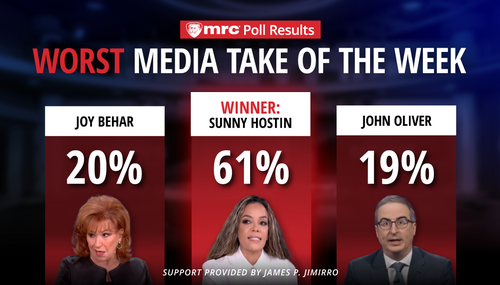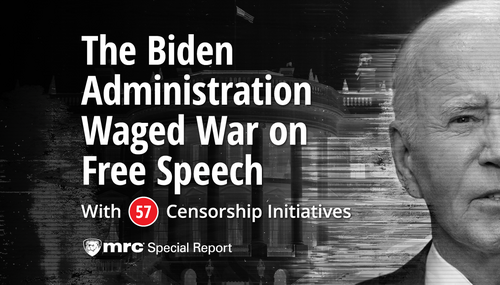 Shaquille O'Neal was one of the most dominant centers in the history of the NBA and now he is one of the most popular entertainers among athletes retired and active, with a growing list of TV commercials and movie credits. He's also a good citizen who wants to serve as a sheriff in Georgia. But to the divisive ESPN writer Howard Bryant, one of America's leading social justice enforcers, Shaq is a piker who should be rushing to join the crusade of race-baiting Kaepernick malcontents.
Shaquille O'Neal was one of the most dominant centers in the history of the NBA and now he is one of the most popular entertainers among athletes retired and active, with a growing list of TV commercials and movie credits. He's also a good citizen who wants to serve as a sheriff in Georgia. But to the divisive ESPN writer Howard Bryant, one of America's leading social justice enforcers, Shaq is a piker who should be rushing to join the crusade of race-baiting Kaepernick malcontents.
As The Hollywood Reporter's Tatiana Siegel relates the story, Shaq (seen above accepting Hall of Fame honors in 2016) says something very refreshing: "I don't do politics. I'm in the fun business." Is it any wonder someone so positive appeals to red states and blue states? He sure doesn't appeal to Bryant the flag-hating SJW, though. Bryant, the author of The Heritage: Black Athletes, a Divided America, and the Politics of Patriotism says O'Neal's silence is itself a political stance:
In today’s times, saying nothing is as powerful as speaking. By choosing to be a pitchman and choosing to be quiet, you are making a political statement. He just doesn’t want you to know what he thinks. He’s an entertainer. He’s making a lot of money. He’s got a lot of visibility. I think he’s making a calculated decision not to speak on [politics].
It's no wonder Shaq and Michael Jordan are so popular. Marketing Evaluations president Steven Levitt says Shaq “stays out of all kinds of controversy. Shaq has great appeal with children, teens and adult males. He’s like a gentle giant. Happy, playful, always smiling. There’s no baggage associated with him — except for being terrible at the free throw line.”
We haven't had a lot of this in sports recently. Mostly the politics we get out of athletes and sports media is about terrible racist cops, racial inequality, gun control, whitey hating and more of that mulch. We can thank Bryant and his Black Lives Matter pals for much of it.
Siegel explains why Shaq is above that:
Harrison (Shaq's father) instilled in O’Neal a respect for the military and law enforcement — not a popular sentiment among the current crop of black athletes and the larger Black Lives Matter movement. "My father was like that. You don’t be quiet during the national anthem, he’d go crazy," he says. "Now people starting to hate police, and I don’t like it, personally. I don’t get it. You know, I always tell some people, ‘Hey, if a rapper does something crazy, you want me to hate all rappers? You know, one athlete does something crazy, you want people to hate all athletes?’ So I love police. I’ll always support them.”
O'Neal has nothing bad to say of Kaepernick, but he would handle things a lot better if he had a beef about something. If "I was making a stand, I probably would have got about 500 top athletes, set up a press conference, invite everybody to say something and come out on TV,” he says. That's preferable to kneeling during the national anthem and spoiling Sunday afternoon for football fans.
A college teammate of O'Neal's from LSU, Mahmoud Abdul-Rauf, was with the Denver Nuggets in 1996 when he refused to honor America. Shaq called him and said, "Hey, bro, you don’t want to be standing for the anthem, just stay in the back, you know? ’Cause you’re starting to offend some people. I was like, ‘Look, man, that’s tripping. Stay in the tunnel. Don’t come out.'”
Where is the athlete with the good sense to say this today to the millionaires who think they're slaves and America is so bad? Hopefully this fall, he'll be leading them from the clubhouse out onto the field to stand and respect those who died defending liberty.





